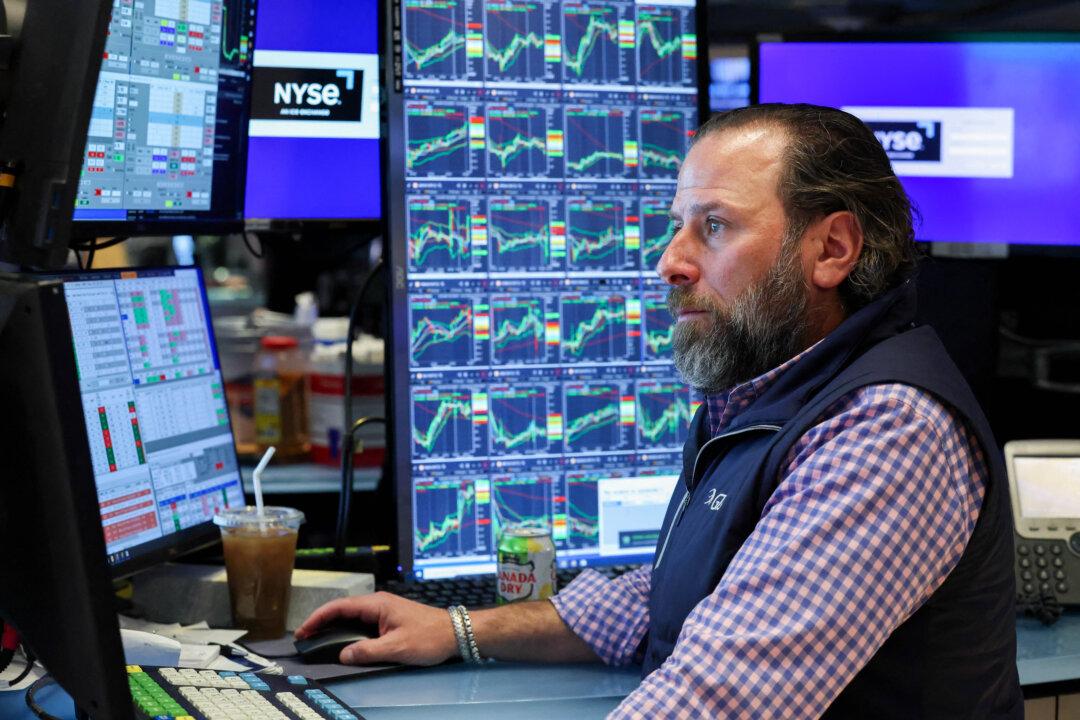The three major U.S. stock indexes dropped on the morning of April 3 after President Donald Trump announced sweeping tariffs of 10 percent or higher, with the Dow Jones Industrial Average plunging by approximately 1,100 points by noon.
Aside from the Dow Jones tumbling, the S&P 500 Index dropped by 3.5 percent, and the Nasdaq Composite slid by more than 4.7 percent at about 9:35 a.m. EST.





